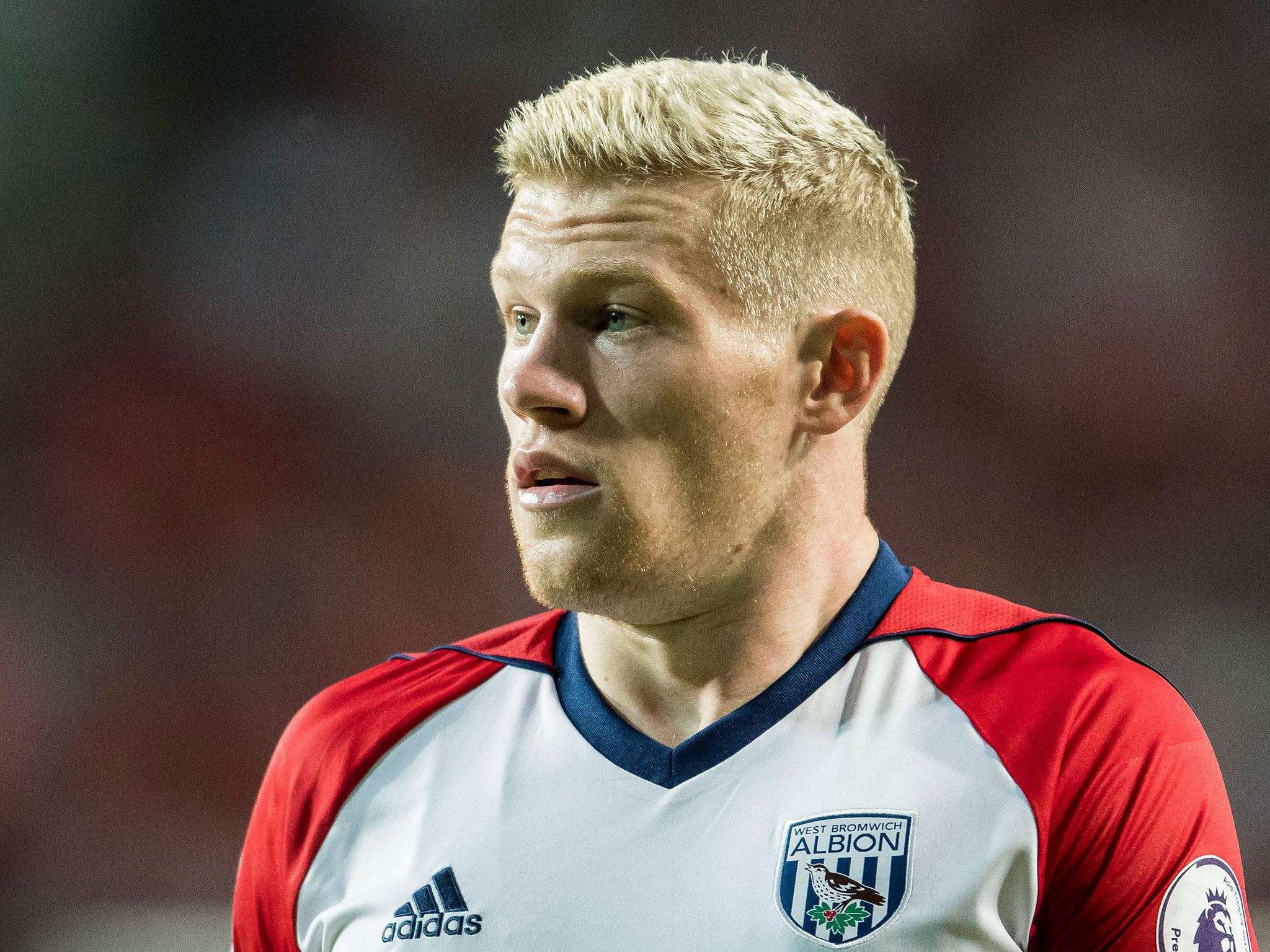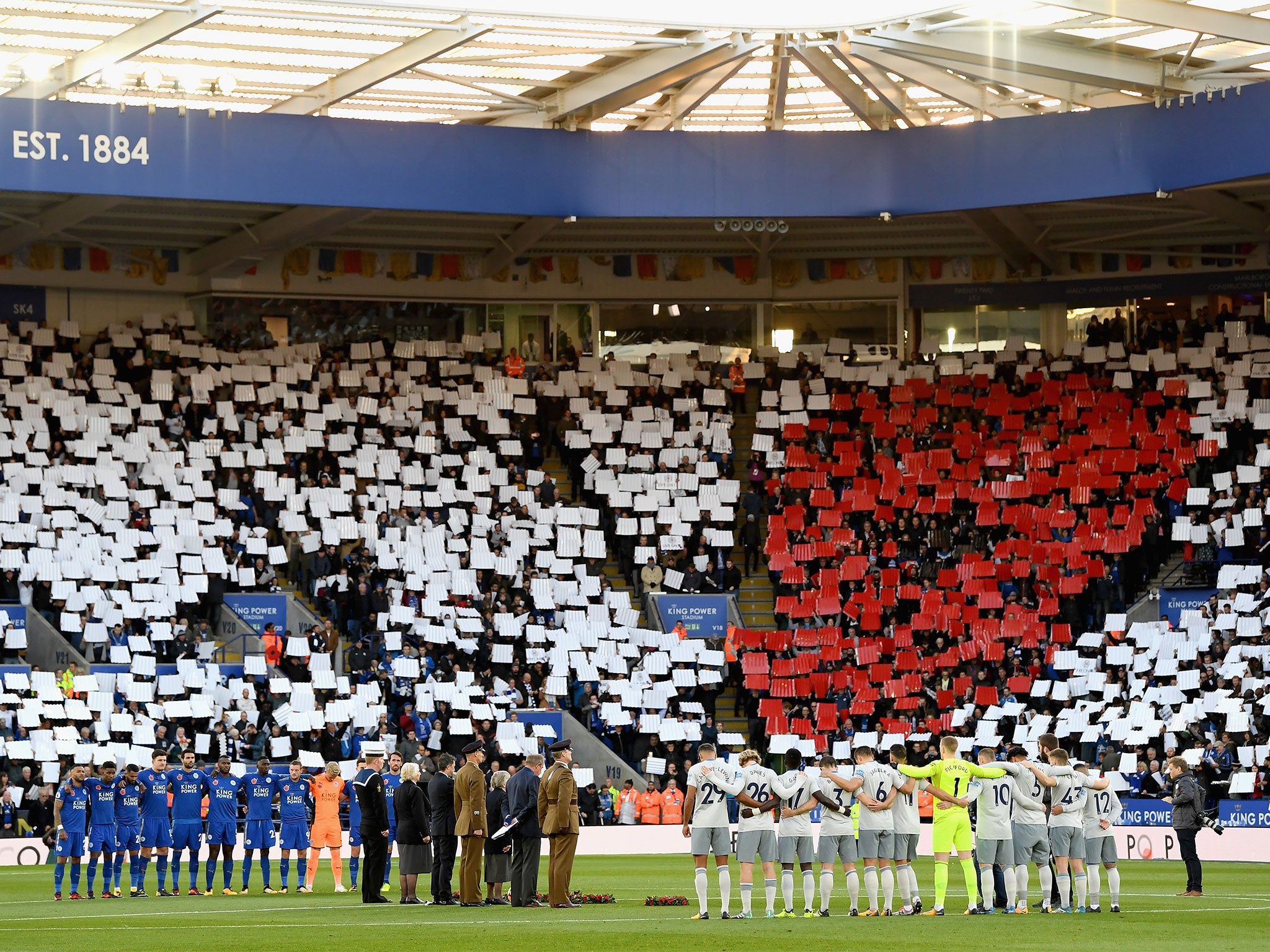Why doesn't James McClean wear a poppy on Remembrance weekend?
The West Brom man has chosen not to wear a poppy each and every year he has played in England. Here we explain why

Your support helps us to tell the story
From reproductive rights to climate change to Big Tech, The Independent is on the ground when the story is developing. Whether it's investigating the financials of Elon Musk's pro-Trump PAC or producing our latest documentary, 'The A Word', which shines a light on the American women fighting for reproductive rights, we know how important it is to parse out the facts from the messaging.
At such a critical moment in US history, we need reporters on the ground. Your donation allows us to keep sending journalists to speak to both sides of the story.
The Independent is trusted by Americans across the entire political spectrum. And unlike many other quality news outlets, we choose not to lock Americans out of our reporting and analysis with paywalls. We believe quality journalism should be available to everyone, paid for by those who can afford it.
Your support makes all the difference.West Brom player James McClean has refused to wear the traditional Remembrance Day poppy on his shirt each and every year since first moving to England to join Sunderland in 2011.
He will again choose not to wear a shirt emblazoned with the poppy when his current side West Bromwich Albion take on Manchester City this weekend.
But why does McClean object to wearing a poppy on his shirt?
The history of the poppy
In the aftermath of the First World War, the poppy emerged as a potent symbol of commemoration, redolent of the swathes of red poppies that filled the battlefields of Northern Europe where so many gave their lives between 1914 and 1918.
And since 2012, each and every Premier League club has worn poppies sewn into specially made shirts during the month of November.
The special shirts are usually then auctioned as part of the annual Poppy Appeal organised by The Royal British Legion.

McClean’s objection
McClean was born and brought up in city of Derry, in Northern Ireland. He grew up on Creggan estate, where six of the people killed on Bloody Sunday in 1972 came from.
Bloody Sunday was one of the most significant events of The Troubles conflict in the country, when British soldiers shot 28 unarmed civilians during a peaceful protest march.
McClean objects to wearing the poppy because the symbol commemorates military personnel who have died in war – and not just soldiers who lost their lives in the First and Second World Wars.
What has he said on the topic?
In 2015, McClean explained his stance in the West Brom matchday programme.
“People say I am being disrespectful but don’t ask why I choose not to wear it,” McClean wrote.
“If the poppy was simply about World War One and Two victims alone, I’d wear it without a problem.
“I would wear it every day of the year if that was the thing but it doesn’t. It stands for all the conflicts that Britain has been involved in. Because of the history where I come from in Derry, I cannot wear something that represents that.”

What has been the reaction to his stance?
Mixed. McClean has previously been booed by supporters of opposition clubs as well as fans of his own team. He has also received sectarian abuse and loyalist threats.
However he has received support from various players and managers, including Tony Pulis, who said he respects McClean’s decision but added he did not believe in it himself, according to the Telegraph.
Join our commenting forum
Join thought-provoking conversations, follow other Independent readers and see their replies
Comments